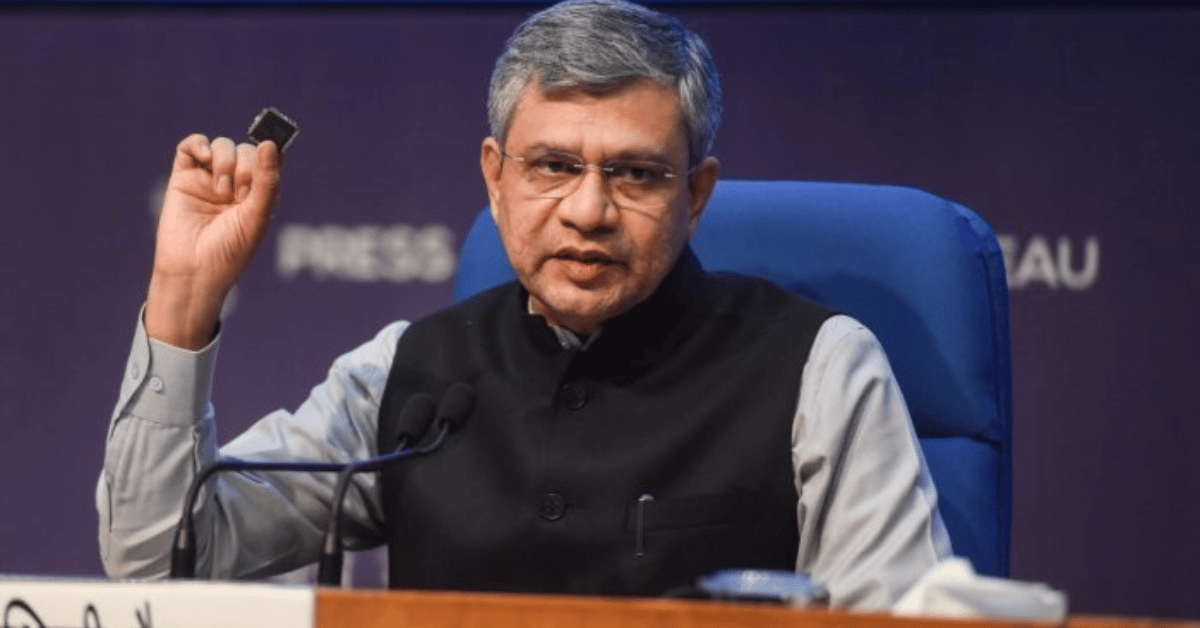The revised National Policy on Electronics 2019, which is under consultations, would look to meet the demand of the $500 Bn domestic electronics market by 2030
Besides creating Indian brands, the policy would focus on manufacturing electronics components and semiconductors
To support the development of such products and brands, the government is considering establishing a fund of funds and an intellectual property rights pool
The Ministry of Electronics and Information Technology (Meity) is focusing on domestic value addition and creating global brands from India under the revised National Policy on Electronics 2019 (NPE 2019).
The policy would look to meet the demand of the $500 Bn domestic electronics market by 2030, Mint reported, citing sources.
The revised policy aims to enhance the country’s design capabilities and push for high-value-added products. Priority items under this framework include smartphones, home appliances, consumer electronics, and hearables and wearables.
Additionally, products such as smart metres and optical converters, which are expected to see significant domestic demand as India upgrades its utility infrastructure, are also likely to be featured.
Besides creating Indian brands, the policy would focus on manufacturing electronics components and semiconductors, an industry executive was cited as saying.
The policy’s broader objectives focus on boosting local value addition to 34-40%, attracting global value chains to India, and positioning the country as a key export hub for electronics and components, as per the report.
To support the development of such products and brands, the government is considering establishing a fund of funds and an intellectual property rights (IPR) pool.
The Production Linked Incentive (PLI) scheme for electronic components is set to replace the Scheme for Promotion of Manufacturing Electronic Components and Semiconductors (SPECS), which expired in March. This move follows a series of government initiatives aimed at strengthening India’s manufacturing sector.
Notably, under SPECS, the government facilitated an additional investment of INR 8,803.14 Cr to promote electronic components and semiconductor manufacturing.
Meanwhile, the PLI scheme for large-scale electronics manufacturing, which provides incentives of 3-6% on incremental sales of locally produced goods over a five-year period, has seen an investment of INR 8,390 Cr.
Further, finance minister Nirmala Sitharaman announced a number of measures during her recent Budget speech to boost the domestic electronics industry.
A recent report by NITI Aayog said that India should aim to achieve $500 Bn in electronics manufacturing by the financial year 2029-30 (FY30).
It also noted that this target could help create 5.5 Mn to 6 Mn direct jobs in the country by the end of the same fiscal year. The report said that despite advancements in infrastructure and ease of doing business, India’s electronics market remains relatively modest, accounting for only 4% of the global market.
Disclaimer
We strive to uphold the highest ethical standards in all of our reporting and coverage. We StartupNews.fyi want to be transparent with our readers about any potential conflicts of interest that may arise in our work. It’s possible that some of the investors we feature may have connections to other businesses, including competitors or companies we write about. However, we want to assure our readers that this will not have any impact on the integrity or impartiality of our reporting. We are committed to delivering accurate, unbiased news and information to our audience, and we will continue to uphold our ethics and principles in all of our work. Thank you for your trust and support.



![[CITYPNG.COM]White Google Play PlayStore Logo – 1500×1500](https://startupnews.fyi/wp-content/uploads/2025/08/CITYPNG.COMWhite-Google-Play-PlayStore-Logo-1500x1500-1-630x630.png)